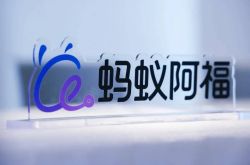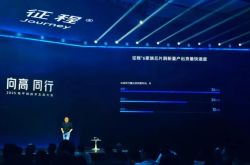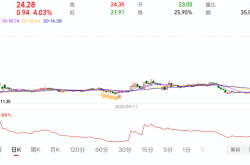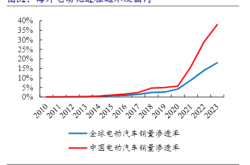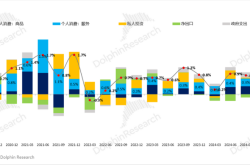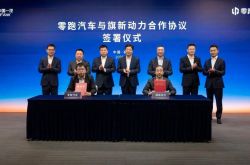Can Huawei's HarmonyOS Intelligent Drive succeed?
![]() 11/15 2024
11/15 2024
![]() 478
478
Intelligence is the backbone of premium pricing for high-end electric luxury brands
Body
In China's high-end automotive market, more and more people are turning their attention to car brands endorsed by Huawei.
As HarmonyOS Intelligent Drive celebrates its first anniversary, its entire line of models has delivered a cumulative total of 500,000 vehicles in 32 months, setting the industry's fastest delivery record, surpassing Lixiang One's achievement of delivering 500,000 vehicles in 46 months.
Simultaneously, the average transaction price of HarmonyOS Intelligent Drive vehicles has also increased, surpassing traditional luxury brands BBA for six consecutive months and maintaining the top spot in market average transaction prices.
HarmonyOS Intelligent Drive is breaking the decades-long monopoly of European and American automakers like BBA and Porsche in the Chinese high-end automotive market.
Redefining High-End Brands
In the past era of internal combustion engine vehicles, one of the core breakthroughs for latecomers aiming to compete with European and American century-old automotive brands was cost-effectiveness. A typical example is Japanese cars, positioned for low fuel consumption and high cost-effectiveness, which gained popularity overseas from the 1960s.
In this era, product premium pricing, or the backbone of luxury and high-end brands, relies on technology, with powertrain technology at its core. From hardware parameters to calibration and tuning, more powerful engines with higher technical difficulty and cost have become the hallmark of luxury cars.
Now, under the trend of electrification, the pricing logic based on engine power for internal combustion engine vehicles is no longer applicable.
So, are technical capabilities still the core competitiveness of electric vehicles, similar to internal combustion engine vehicles?
The first half of the electrification era has already provided an answer. The core components of electric vehicles consist of batteries, electric controls, and motors. While manufacturing technologies for electric controls and high-power motors are mature, battery technology is largely dominated by a few suppliers like CATL.
In other words, for pure electric vehicles, technology cannot create differentiated competition, and models of the same class and price range may fall into the issue of homogenization.
In the second half of the electrification era, intelligence is the true core focus for automakers to create differentiated competition.
Taking Tesla as an example, it not only innovates in hardware but also makes breakthroughs in software and business models. Its OTA continuously upgrades data processing and mapping capabilities. New force Xiaopeng, on the other hand, focuses on the user's sensory experience within the vehicle, significantly highlighting the driving experience difference between Xiaopeng and traditional cars, from smart cabins to assisted driving.
In summary, electric vehicle manufacturers mainly focus on creating intelligent competitiveness in the directions of service and technology.
Intelligent Selection Model Breaks the Ice First
For traditional OEMs, the best way to seize the opportunity of intelligence is to find a "tech company" to ally with, seeking new breakthroughs in the integration of hardware and software.
With years of deep involvement in the field of electric intelligence, Huawei has embraced an opportunity.
As early as 2019, Huawei launched HarmonyOS, a new distributed operating system, laying out a strategy for the Internet of Everything, with smart cars as a key element.
Huawei has proactively laid out key components for electric intelligent vehicles and currently has a "1+8+N" strategy. Based on the centralized CCA architecture, Huawei has built three operating systems: HOS, VOS, and AOS, establishing three computing platforms for smart cabins, smart vehicle controls, and smart driving. Collaborating with intelligent hardware facilities such as lidar, cameras, and AR-HUD as functional extensions, Huawei has ultimately created five intelligent systems: smart driving, smart cabins, smart electricity, smart connectivity, and smart vehicle clouds.
Moreover, Huawei has introduced three cooperation models with traditional automakers: the incremental component supplier model, the parallel-implemented HI model, and the intelligent selection model, with the intelligent selection model being the predecessor of HarmonyOS Intelligent Drive.
Under HarmonyOS Intelligent Drive, Huawei not only leads product design and definition but also directly participates in product positioning, pricing, marketing, and terminal sales, comprehensively assisting automakers from technology to channels.
Smart driving is a competitive high ground among major automotive brands. Based on self-developed chips and algorithms, HarmonyOS Intelligent Drive currently possesses "mapless" autonomous driving capabilities. Additionally, all HarmonyOS Intelligent Drive products have been upgraded to Huawei's ADS 3.0 advanced smart driving system, surpassing competitors in perception, decision-making, response, and safety coefficients.
In the field of smart cabins, HUD and the HarmonyOS operating system already possess core competitive advantages. The HarmonyOS automotive operating system has been upgraded to the 4th generation, with key features of HarmonyOS 4.0 including six-sound-zone source localization, multi-person, multi-screen, and multi-sound-zone concurrent control, in-cabin eye position tracking and eye state recognition, multi-screen and multi-channel bidirectional flow, and multi-screen cross-device screen casting.
As of October 14, 2024, HarmonyOS Intelligent Drive has surpassed 850 million kilometers of smart driving, with users driving over 210 million kilometers in urban areas using NCA. During the 2024 National Day holiday, an additional 77 million kilometers were added to HarmonyOS Intelligent Drive's smart driving mileage.
The first half of electrification has passed, and the second half of intelligence is accelerating. HarmonyOS Intelligent Drive is expected to seize the initiative.
Challenging the High-End Automotive Market
From the strategic layout of the product matrix, a high-end automotive company should strive to provide consumers with more power and model options.
HarmonyOS Intelligent Selection currently collaborates with four major automakers: Thalys, Chery Automobile, JAC Motors, and BAIC BluePark, with their collaborative models named Ask, Wisdom, Respect, and Enjoy respectively.
From the perspective of price range and model positioning, the new Ask M7 and Wisdom S7 are based on C-segment vehicles, targeting the high-end family SUV and high-end sports sedan markets respectively. HarmonyOS Intelligent Drive is already competitive in the high-end market priced between 250,000 and 350,000 yuan; Ask M9, as HarmonyOS Intelligent Drive's first D-segment model, targets the 400,000 to 600,000 yuan market, signaling HarmonyOS Intelligent Drive's official entry into the high-end flagship market. Subsequently, C-segment high-end sedans in collaboration with BAIC BluePark and D-segment sedans/SUVs/MPVs in collaboration with JAC will be successively launched.
Among them, Ask is the oldest brand series in HarmonyOS Intelligent Drive. The cumulative sales of the Ask M7 and Ask M9 models exceeded 100,000 units in the first three quarters of this year. Moreover, the Ask M9 has remained the sales champion among models priced above 500,000 yuan in the Chinese market for six consecutive months, with its product strength recognized by the market.
However, not all products have been smooth sailing.
As an entry-level model, sales of the Ask M5 are less than 30,000 units, attributed to the awkward product pricing. The revised Ask M5 has a starting price of 249,800 yuan, the same as the entry-level Ask M7. The main advantages of the Ask M5 are low energy consumption and Huawei's Qiankun ADS SE version, but the entry-level Ask M7 excels in space performance and ride comfort. Many consumers who are less sensitive to energy consumption and prefer larger spaces would favor the Ask M7.
Additionally, the Ask M5 faces fierce market competition with numerous competitors in the industry, such as the Lingke 08 EM-P, Tang DM, Geely Zeekr 007X, and Xiaopeng G6 mid-size new energy SUVs.
This issue also plagues the Enjoy S9, a model priced at an average of over 400,000 yuan, targeting the mid-to-large executive sedan market dominated by BBA. However, sales have been unsatisfactory, with only 2,169 units sold in September. It is evident that overtaking the Audi A6L and Mercedes-Benz E-Class, which sell over 10,000 units per month, will be difficult to achieve in the short term.
Nevertheless, compared to competitors, the Enjoy S9 has more advantages in intelligence, with features like the HarmonyOS cabin and Huawei ADS 3.0 that are unattainable by traditional luxury brands. The Enjoy S9 is equipped with zero-gravity seats and a one-click privacy mode, making it ideal for business negotiations. It also comes with a rear screen, laser projection, seat linkage, and other configurations.
Perhaps in business reception scenarios, brand awareness carries more weight, and consumers are more inclined to choose BBA brand models with higher recognition.
HarmonyOS Intelligent Drive's ambitions do not stop here. The Respect series, in collaboration with JAC, aims to produce million-yuan products, competing with ultra-luxury brands like Maybach and Rolls-Royce, with an estimated annual production capacity of 35,000 units.
In summary, HarmonyOS Intelligent Drive has achieved remarkable results in the new energy vehicle field, but some brands still need to further enhance brand awareness and reputation. What lies ahead? Let's wait and see.

